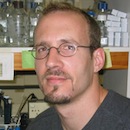Academic Editors
The following people constitute the Editorial Board of Academic Editors for PeerJ. These active academics are the Editors who seek peer reviewers, evaluate their responses, and make editorial decisions on each submission to the journal. Learn more about becoming an Editor.

Maha El Tantawi
Professor of Dental Public Health in Alexandria University, Egypt.

Diego Veras Wilke
Professor of physiology and pharmacology at Federal University of Ceara. Research focuses on a combination of marine natural product discovery with molecular and cellular biology to identify new anticancer leads.

Boris Rubinsky
Professor at UC Berkeley since 1980. Resides in the Department of Mechanical Engineering. Research in biomedical engineering.
Dr. Rubinsky's research interests include:
Heat and mass transfer in biomedical engineering and biotechnology in particular low temperature biology, bio-electronics and biomedical devices in particular micro and nano bionic technologies and electroporation, medical imaging in particular electrical impedance tomography and light imaging, biomedical numerical analysis in particular genetic and evolutionary algorithms and fractal techniques.

Rafael Reimann Baptista
Rafael Reimann Baptista, PhD, is a Full Professor at the Pontifical Catholic University of Rio Grande do Sul (PUCRS), Brazil. He is also member of the Brazilian Society of Biomechanics. Professor Baptista completed his PhD in Human Movement Sciences at the Federal University of Rio Grande do Sul in 2011. Professor Baptista maintains active membership of numerous professional and academic societies. In 2012, he was awarded by the Young PhD grant by the Foundation for Research Support of the State of Rio Grande do Sul (FAPERGS), Brazil. In 2017, he was the President of the XVII Brazilian Congress of Biomechanics, supported by the National Council for Scientific and Technological (CNPQ), the Foundation for Research Support of the State of Rio Grande do Sul, and the Coordination of Superior Level Staff Improvement (CAPES). Professor Baptista sits on the editorial board for the Frontiers in Physiology as Associate Editor in Exercise Physiology and at the Editorial Board of PeerJ Life and Environment, and has published 78 papers including 30 in international peer-reviewed journals according to Scopus, with a 9 h-index. He is a frequent invited keynote speaker at academic conferences and educational events across Brazil and South America. He works in exercise physiology and biomechanics, with an emphasis in the clinical aspects of gait in older adults. He coordinates the Physical Activity Research and Evaluation Laboratory (LAPAFI) at the School of Health and Life Sciences at PUCRS.

Cosme F Buzzachera
Associate Professor & Researcher at the Department of Public Health, Experimental Medicine & Forensic Science, University of Pavia, Pavia, Italy | Interested in Human Performance

Thomas D Tullius
Professor of Chemistry, and Director of the Program in Bioinformatics, Boston University. Elected Fellow of the AAAS. Recipient of the Herbert A. Sober Award of the ASBMB. Research interests include developing new chemical probe methods (in particular, hydroxyl radical footprinting) for determining the structure of DNA, RNA, and DNA-protein complexes.

Alexis Verger
Senior Molecular Biologist (CR1 CNRS) at the Interdisciplinary Research Institute (IRI) - Lille 1 University - France.
My lab studies how human genes can be turned on and off by transcription factors. We investigate the fundamental mechanisms underlying specific gene control in the context of diseases, such as cancer.

Arif J Siddiqui
Dr. Arif Jamal Siddiqui is an Associate Professor and Principal Investigator at the Department of Biology, College of Science, University of Hail, Saudi Arabia. He received his PhD from CSIR-Central Drug Research Institute, Lucknow, India in 2015. From 2015 to 2018, he worked as a Post-Doctoral Fellow at Texas Tech University Health Sciences Center, Lubbock, Texas, United States of America.
He has more than 8 years of experience in research, teaching and administration. In his professional work, he has received research grants as a Principal Investigator from various renowned organizations. He has successfully published more than 100 publications in internationally recognized peer-reviewed prestigious journals, published several book chapters for internationally renowned publishers and presented many articles and posters in various conferences/workshops worldwide. He has published numerous papers in the fields of parasitology, immunology, herbal medicine, vaccine development, drug discovery and natural products with a specialization in anti-parasitic, antiviral, anticancer and antibacterial agents. Furthermore, he is a member of The Indian Science Congress Association, India and the Annals of Parasitology, Poland. He has reviewed more than 250 manuscripts and he also currently holds various editorial positions (Academic, Associate, Guest and Review Editor) in various reputable journals and has edited more than 150 manuscripts.

Oren Levy
The aim of our research group is to understand the dependency between environmental cues (e.g. light and temperature) that underlie circadian rhythms in symbiotic marine organisms, reef-building corals, in regulating physiology and behavior. Symbiotic corals will serve as a model system to investigate the dependency between two circadian-system associations or non-associations in the simple multicellular organism, on the physiological and molecular levels.

Jianye Ge
Dr. Jianye Ge is the Associate Director of the Center for Human Identification and an Associate Professor in the Department of Microbiology, Immunology & Genetics at the University of North Texas Health Science Center. His research relates primarily to forensic genetics, bioinformatics, and data mining. The software programs he developed have been used by the Federal and State government agencies to assist in solving criminal cases.

Jacqueline Batley
Professor in the School of Biological Sciences, University of Western Australia. I hold an Australian Research Council Future Fellowship. Research interests include plant-pathogen interactions, crop genetics and genomics, genome sequencing, Brassicas, structural variation, diversity genomics, methylation

Michael S. Singer
Professor of Biology and Environmental Studies at Wesleyan University. Research focus on the role of tri-trophic interactions in evolutionary, community, and food web ecology. Additional specific expertise in plant-insect interactions and Lepidoptera.

